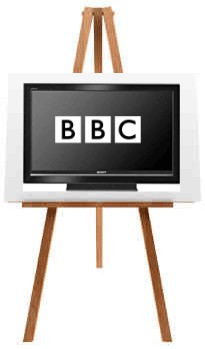
When the BBC Trust put the BBC’s lightweight, bare-bones proposal for an industry-wide IPTV VOD platform out to consultation in February, consultation respondents scratched their head in a collective “Eh?”. Four months later, the trust asked the Beeb what Canvas really is – and has now published the extra detail in a 76-page collection of documents. Here, on one page, we have collected the main points we didn’t know before…
Venture proposal (respondents had questioned eligibility critera) :-
— Private company: Owned 66.7 percent by public service broadcasters, 33.3 percent by ISPs.
— Members: Only four PSBs assumed (so is S4C being overlooked?).
— Membership criteria: very flimsy – 1) Show commitment to promote Canvas devices, 2) ISPs must have at least five percent UK market share to be members. “We have also indicated our support for involvement from Arqiva” (suddenly, the radio mast company buying Kangaroo makes sense!).
— Governance: Led by an MD, with a board comprised of PSB, ISP and network representatives. Decisions taken by majority voting.
— Funding: Members would have to commit for an initial four years.
— Canvas kitemark: Existing members BBC, ITV (LSE: ITV) and BT (NYSE: BT) are now “setting a quality level for the delivery of content over the internet”.
— Support: Would operate a single call centre (may not be received well by rival pay-TV operators).
— It will want to “recover certain operating costs”.
— Wants to “bring a globally scalable specification to the market in the UK in 2010”.
EPG and access (respondents had opposed a proscribed interface):-
— But the Beeb is rejecting calls for open source, saying “a consistent approach to the user interface is fundamental”.
— “Thin core UI“: BBC is offering partners “sub-sections” of the UI – it keeps control of the top-level EPG, while content providers or service operators get to customise and add to their own programme info or VOD section, which they will “own”. ie. iPlayer would have its own section, so would 4oD.
— Charge websites for listings: There’s a “possibility of on-demand guide listing fees for the broadband content services”. (Bang goes the notion the likes of Dailymotion and YouTube would get free access!).
— But “content owners would be able to earn subscription, pay per view and other pay revenues“, enabled by “DRM, conditional access and data management”. “Provision of billing services would be a matter for third parties”. BBC is pushing for only one DRM standard, to be decided on swiftly.
— Video content could come indirectly through existing aggregators (“eg. Joost, Virgin, iTunes, Top Up TV”).
— Website access still on the agenda, though in “app” form, with an “app directory”; “services can be developed for Canvas using common web tools”.
— EPG must be personalisable and would show “most popular” shows, categories and viewer favourites.
— “Common metadata standards for on-demand content”, but “each content provider will use their own content management system”.
— Device makers: Can customise the core UI’s look and feel, but Canvas badge can only be used on boxes sporting the default UI.
— ISPs get a main menu “shortcut” to their own services.
— Data gathering: Will give viewer stats to content providers, with a cost recovery fee. Users can opt out.
— Targeted advertising: “The Canvas JV will not operate an ad-serving/targeting system, but will instead provide experiences so that content incorporating technology for additional commercial activities, providers can dynamically serve advertising in to videos and other content”. Canvas video player can be extended to run providers’ own video ads.
Industry engagement and technical standards (respondents were confused whether BBC wants to create a new standard or work with existing standards bodies):-
— Beeb says it’s met with Digital TV Group, Intellect and European broadcasters and TV platforms since.
— BBC advocates “open standards” or “de facto standards”.
— It is now supporting Digital TV Group in broadening its membership from broadcasters to include ISPs, internet publishers and app developers. Acknowledges EBU, DVB and OIPF are “sovereign bodies”.
— Will work with Digital TV Group to work on a standard by March 2010 that would “represent a sub-set of the fuller Canvas specification”.
— Aiming to launch Canvas devices by Sep/Oct 2010, in time for Christmas retail.
Distribution (ISPs were concerned at rising traffic costs):-
— BBC wants picture quality comparable to Freeview channels and will define a minimum bitrate with no mid-play buffering.
— Users must be told if bandwidth allows them to “play now” or “play later”. HD video, Beeb says, will naturally be “play later”, but “play now” may also be facilitated by push-VOD.
— BBC doesn’t offer compensation for higher network costs, and will not make a distribution network; it’s leaving traffic management policies up to ISPs, but will develop a policy framework.
— Digital Britain: “2Mbps will be adequate for Canvas“.
— CDN? BBC says it hasn’t yet contracted any content delivery network but is talking with BT more widely.
— ISPs may be left disappointed that paying for the extra traffic is left up to them.
Fit with BBC strategy (some like Sky wondered whether the BBC should be creating an industry platform):-
— It’s all about tying up with Freeview HD in 2010.
— It will provide a return path (ie. online viewer input) to Freeview HD broadcasts.
— Beeb says it wants to follow the BBC Trust’s Competitive Impact Codes.
Costs (original plan said £6 million over five years):-
— “Customer support costs have been allocated up to a point”.
— Canvas JV would pay platforms costs including metadata management.
The new info has now gone out to a second consultation, closing September 1. The trust will publish provisional conclusions in the autumn before yet another, four-week consultation, followed by a final decision ASAP.